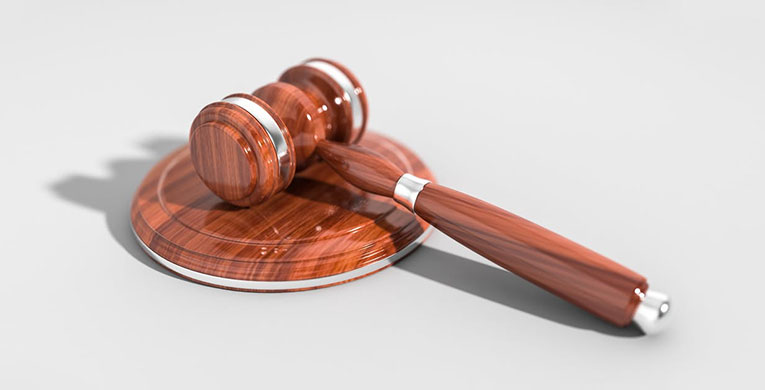What do I need to do in the event of legal proceedings?
As the creator of an original work, you have authorship rights to this work. The purpose of this is to protect you from any form of dispossession. It is still possible for someone to steal or plagiarise your creation, but rest assured! You can protect yourself by registering your work and taking penal or civil legal action.
A brief reminder on the notion of authorship rights
Governed by intellectual property laws, rights of authorship give a monopoly of possession which belongs to the author of the work. No formalities are required in order for this to apply, you must simply be in a position to prove that this creation originated with you. In intellectual property law, the kind of evidence is not imposed, which means that any form of evidence can be brought.
Not all works are covered by authorship rights. As such patents, trademarks etc. come under a specific system and are subject to registration with the INPI in order to be covered.
Authorship rights have two components: moral rights and ownership rights. The former are imprescriptible, which means that they can be passed down to heirs, and inalienable (they cannot be sold on). Ownership rights restrict use of the work and cover a 70 year period after the death of the author.
Registration before any disputes arise
The law protects authorship rights, without the need for the owner to follow any specific process. However, in order to be covered in the event of theft or plagiarism, and for the resulting legal action, it is in the best interests of the creator to register his work.
It is possible to carry out this registration through authors’ associations, such as the SACEM, the SACD or the SCAM, but the problem with this is: there is a time-limit on it, albeit a renewable time-limit, and it can be contested.
On the other hand, registration with a sworn official such as a public notary has an irrefutable probative value, both for the content and the date of the registration. This evidence is difficult to contest legally. 01copyright.com offers to carry out your copyright registration with a public notary in a matter of minutes. Click here to register a copyright
Penal action: forgery of authorship rights:
First and foremost, in order to bring proceedings for forgery, you still need to demonstrate that a work is original. This assessment is up to the judges, a registration with a government official does not in itself fulfil this condition of originality.
Article L335-2 of the Intellectual Property Code sets out the following : « all written publications, musical compositions, drawings, paintings or any other wholly or partially printed or engraved work, which disregards the law and the regulations governing authorship rights is a forgery, and all forgery is an offence[…] ».
Thus the person who holds the authorship rights can call for the conviction of a person who has attempted to forge his creation.
More often than not, precedence is at the heart of the legal proceedings. If several people claim ownership of a work, the courts will base their ruling on the earliest possession in order to attribute ownership. Let us take the hypothetical case of Mr. X and Mr. Y who both claim to be the owners of the authorship rights to a work. If Mr. X has registered his work with a public notary, he can prove his ownership at a given date. Mr. Y would need to bring evidence of the precedence of his rights in order to win the case. In most cases he can do this by any means he wishes, but the strength of the evidence is an important consideration. If Mr. Y presents a mere letter which contains a copy of the work which he has sent himself, there is little chance of him winning against an act of a public notary, even if this correspondence is earlier than Mr. X’s registration.
A person who carries out forgery of authorship rights can be sentenced to three years in prison and a fine of up to 300 000 € (750 000 € in the case of a company).
The limitation period for this penal action is 3 years from the date of the forgery being committed. This very short time-limit may mean that you are required to bring the action before the civil courts.
Civil action: compensation for loss:
Any person whose rights have been violated can receive compensation for his loss under civil law, which is not possible to bring concurrently with penal action, unless the basis of the complaint is different. Often, the victim of a violation takes time to find out about a forgery. Penal action being prescribed, it is still possible to have recourse to the high court. The aim here is to ask for financial compensation for damages, the amount of which is at the discretion of the judges of the trial. The limitation period in intellectual property cases is 5 years.
